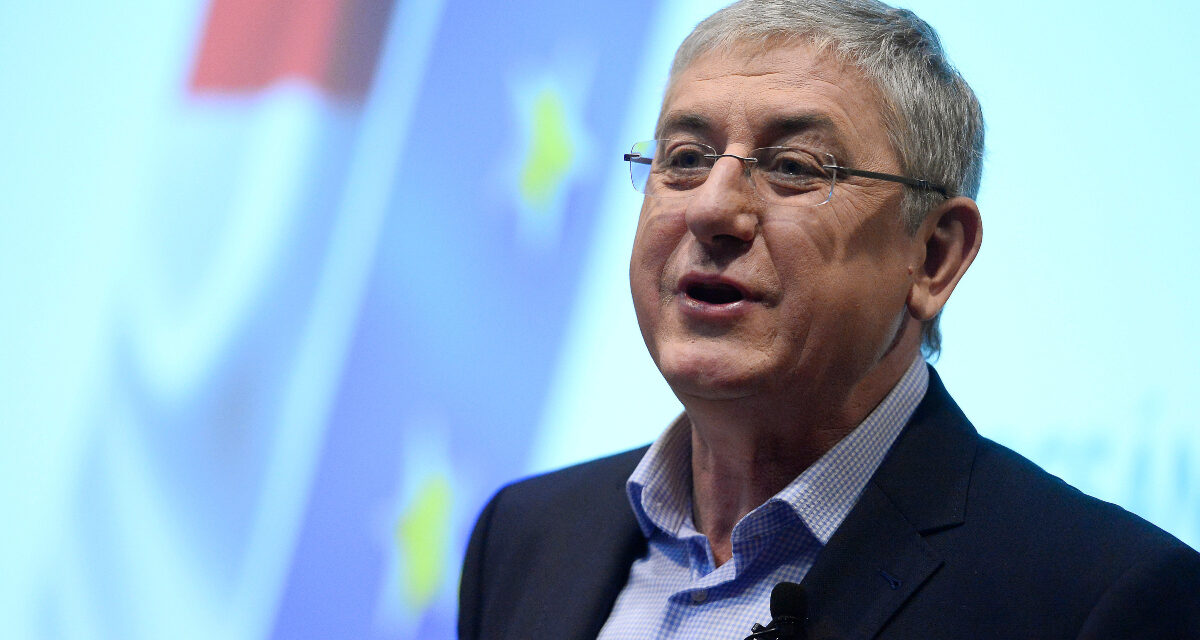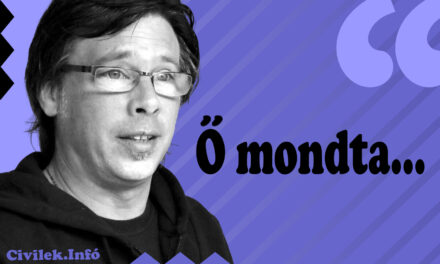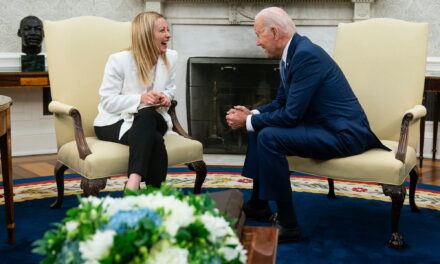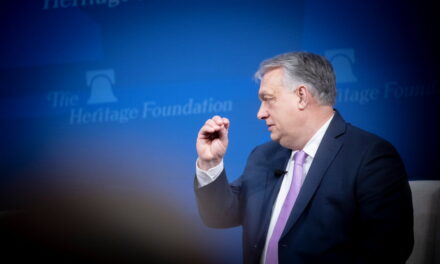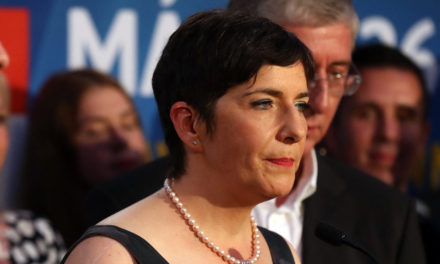Ferenc Gyurcsány made shocking claims in a radio interview the other day. He admitted that Brussels' goal today is to overthrow Hungary's government and that Hungarians do not receive the EU funds they are entitled to. He also spoke about the fact that European political attacks against Hungary are deliberately disguised as legal in nature. Some politicians immediately called this Gyurcsány's "second Ószöd speech", referring to the fact that in May 2006, one month after the election victory, at the closed meeting of the MSZP faction in Balatonszöd, Gyurcsány admitted as prime minister that he had committed fraud, misleading the voters, "hundreds of tricks" and lies they could only win the elections.
Gyurcsány, whose immunity was revoked on September 12, 2011, talks about corruption and the rule of law. The background was the events surrounding the Sukoró scandal, with the suspicion that the second Gyurcsány government influenced the real estate exchange between the American-German-Israeli investment group led by Joav Blum and the Hungarian state, as a result of which the Hungarian state suffered a HUF 1.3 billion loss suffered due to "wrong estimates".
Or: one of the most scandalous chapters in the business history of the fallen leftist prime minister was the seizure of one of the valuable villas of the government resort in Balatonőszöd. The leasing contract signed in 1994 - which the Central State Recreation and Education Center concluded with Ferenc Gyurcsány's company, Aldo Ingatlanfejsztó és Hasznosító Tanácsadó Kft. - could have caused the state a loss of revenue of tens of millions of forints. Later, despite the legislation in force, the Treasury Assets Directorate did not request the permission of the Minister of Finance to remove one of the villas of the government resort from the treasury and be transferred to the ownership of Gyurcsány's company.
The period of the governments before 2010 was characterized by, among other things, corruption scandals, the trampling of the rule of law and the generally negligent handling of political responsibility. Anti-social politics, the first speech in Özöd, the brutal police actions carried out during the 2006 demonstrations and their handling, the participation in the reverse asset management case, the irresponsible economic policy that brought the country to the brink of bankruptcy. The pride with which Gyurcsány described the pursuit of well-being and quality of life in a 2004 TV interview: "Whoever has a two-room apartment usually deserves three, who has three, who has four, who has four, that's a single-family house; who has an aging wife, the younger one, who has messy children, the neater." All of these contributed significantly to the fact that he has been the most unpopular and controversial politician in Hungary for more than a decade and a half.
In 2005, the German newspaper Die Zeit called Ferenc Gyurcsány the Hungarian Tony Blair. But what do the two politicians have in common?For example, Blair has been criticized many times for not paying attention to the differing opinions of members of the British government, as well as the opinion of parliament. Whose attitude as head of government was often more similar to the perception of the role of heads of state in presidential regimes. Gyurcsány went even further than him: it is no coincidence that he received almost ninety percent of the votes in the 2007 presidential election of the MSZP, there was no speaker in the public debate who dared to criticize him or the coalition. Those within the MSZP stifled the alternative, and even tried to enforce their program as "president" not only of the party, but of a country - however, instead of the controversial shaping of world politics, he was left with a hastily imposed, violent "reform policy" at home.
In 2007, after ten years of Blair's government, eleven million of the sixty million British population lived in poverty, and according to a report by the United Nations Children's Fund (UNICEF), the United Kingdom then ranked last in terms of child well-being among the twenty-one member states of the Organization for Economic Co-operation and Development (OECD). among which were the subject of the study. As for our country, after the Gyurcsány administration before 2010, it took many years for society to get back on its feet; thus, in 2012, 3.2 million Hungarians were still poor or excluded, but by 2021 this number had decreased to 1.8 million.
But the most common point is that neither Blair nor Gyurcsány is able and unwilling to take moral responsibility for their former political role.
According to Gyurcsány's current interview: "Hungarian citizens generally do not have their own opinion", but "reverse the opinion of their own reference group". He also states as a fact: "If eighty percent of the Hungarian public is dominated by Fidesz, it is no wonder that the majority of Hungarian voters echo the opinion of Fidesz." The president of DK also says: "There is no free will without free publicity. Who the Hungarian citizens vote for does not tell us about the opinion of the Hungarian citizens, but about the will of the government."
The reality, on the other hand, is that the Hungarian media market is more diverse today than it was twenty or thirty years ago. In the years after the regime change, the ownership and ideological transformation of the privatized press market in Hungary resulted in a 90 percent left-liberal media predominance, and the media dominance of the left until the 2000s was partly eliminated by the media policy of the national right, and partly by the rise of the Internet.
Contrary to Gyurcsány's assertion, according to the fact-based analysis of the Nézőpont Institute and the Médianéző Központ Press Freedom in Hungary 2023, anyone can easily access all news sources in Hungary, as the technical conditions are available, and Hungarian media consumers themselves are considered political omnivores, i.e. three-quarters of Hungarians (76 percent ) consume media products that are friendly to the government and four fifths (eighty percent) that are critical of the government. In addition, Spirit FM, to which he gave the interview, is the radio sister institution of the ATV channel. It is a fact that ATV is the mouthpiece of the left, where Gyurcsány is also a regular guest.
According to Gyurcsány's new, scandalous statement, EU funds will not arrive, "EU money cannot come to Hungary", because it is "clear as day", "hopeless". And this "would mean the death of the NER system, if they did it, then the Orbán system is over". Gyurcsány's speech also spoke about his party's role in the European Parliament: "It goes like this that our amazingly active members of the European Parliament negotiate and carry out their work with the people of the European Parliament and the European Commission continuously. They try to understand what is happening in Hungary. It's a lot of work."
According to the facts, the EP representatives of the Democratic Coalition are using the European Parliament as a political-interest arena to make Hungary's financial and economic situation more difficult with more and tougher EU procedures, withholding the EU funds that belong to our country, and in appropriate cases they also urge the introduction of new device systems.
Klára Dobrev, the party's EP representative (wife of Ferenc Gyurcsány), wrote to the European Parliament last year in order to prevent the agreement between the European Commission and Hungary, thus preventing our country from finally receiving the EU funds it is entitled to. In the EP, they cooperate with partners hostile to the Orbán government when developing their amending proposals. Sándor Rónai, a member of the DK EP, a few weeks before the Hungarian parliamentary elections, but already during the escalation of the situation in Ukraine in the capacity of a shadow rapporteur, called for the further expansion of the rule of law procedures against Hungary in his report entitled "Report on the multi-annual financial framework for the period between 2021 and 2027".
The facts therefore really show that Gyurcsány, who in the government made a country a failure due to his incompetence, is now, in the opposition, directly interested in the impossibility of the Hungarian government by the EU and, ultimately, in the overthrow of the legitimate national leadership, after having a coherent and credible world view and substantive public policy cannot serve Hungarian voters with a program.
Written by Zoltán Lomnici Jr

